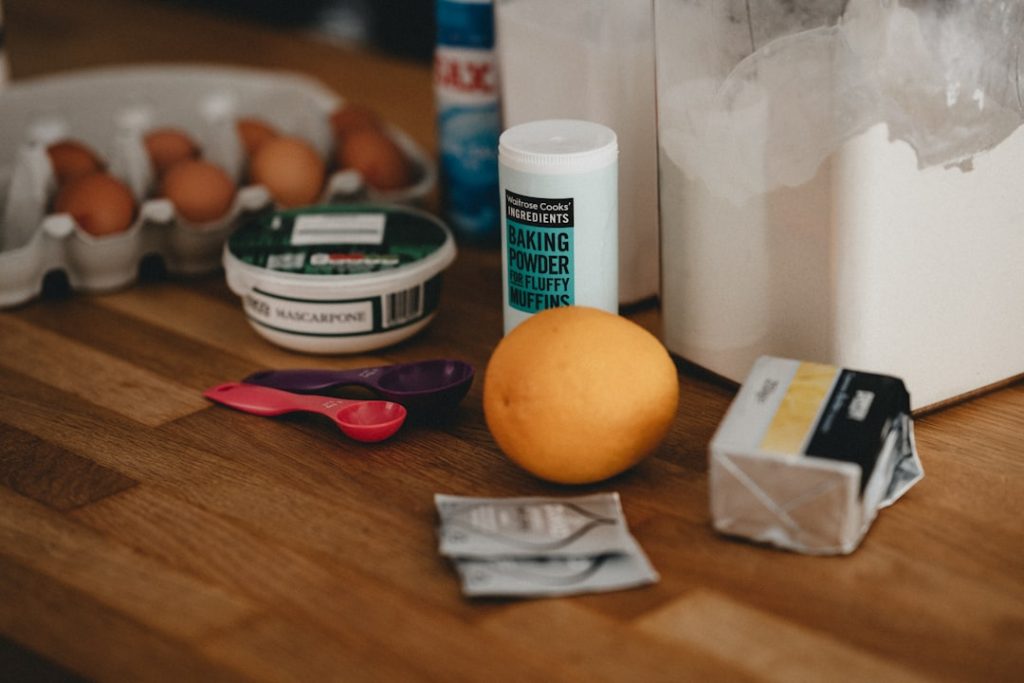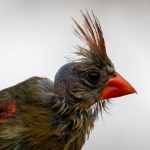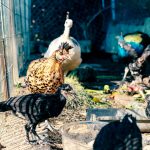Bird flu, or avian influenza, is a highly infectious viral disease primarily affecting birds. Multiple strains exist, with H5N1 being the most notorious. This strain has caused outbreaks in both domestic poultry and wild birds across various countries, and has demonstrated the ability to infect humans.
The virus spreads through direct contact with infected birds, their excretions, or contaminated surfaces and objects. In avian populations, symptoms can range from respiratory distress to reduced egg production and mortality. Human infections can result in severe respiratory illness, with the potential for pandemic spread if the virus mutates to enable efficient human-to-human transmission.
The disease poses significant risks to both commercial poultry operations and small-scale chicken keepers. Its impact on poultry flocks can be devastating, resulting in substantial economic losses. The potential for zoonotic transmission to humans also presents serious public health concerns.
A thorough understanding of the virus’s characteristics, transmission methods, and potential consequences is essential for implementing effective biosecurity measures and preventing disease spread.
Table of Contents
Key Takeaways
- Bird flu is a highly contagious viral disease that can affect birds and humans
- Biosecurity measures for backyard chickens include limiting access to the flock and disinfecting equipment
- Safe handling and disposal of poultry waste is important to prevent the spread of bird flu
- Monitoring and reporting sick birds can help prevent the spread of bird flu in a community
- Vaccination and preventive measures can help protect birds from bird flu
Biosecurity Measures for Backyard Chickens
Controlling Access to the Flock
Controlling access involves limiting contact with wild birds and other potential sources of infection, such as visitors and other animals. This can be achieved by using fencing and netting to create a secure perimeter around the coop and run, as well as implementing strict protocols for anyone entering the area.
Maintaining a Clean and Hygienic Environment
Maintaining a clean environment involves regular cleaning and disinfection of the coop and equipment, as well as proper waste management. This helps to reduce the risk of contamination and prevents the buildup of pathogens.
Monitoring the Health of the Birds
Monitoring the health of the birds involves regular observation for any signs of illness, as well as implementing a vaccination program if recommended by a veterinarian. By implementing these biosecurity measures, backyard chicken keepers can reduce the risk of bird flu and other infectious diseases affecting their flock.
Safe Handling and Disposal of Poultry Waste

Proper handling and disposal of poultry waste is crucial for preventing the spread of bird flu and other diseases. Poultry waste, including droppings, bedding, and feathers, can contain pathogens that can infect other birds and even humans. It is important to handle poultry waste with care, using appropriate protective equipment such as gloves and masks, and washing hands thoroughly after handling it.
Waste should be disposed of in a manner that prevents contamination of the environment, such as through composting or burial. Composting poultry waste can be an effective way to safely dispose of it while also producing nutrient-rich fertilizer for gardens and crops. However, it is important to ensure that the compost reaches a high enough temperature to kill any pathogens present.
Burial is another option for disposing of poultry waste, but it is important to bury it at a sufficient depth to prevent scavenging by wild animals. By following safe handling and disposal practices, backyard chicken keepers can reduce the risk of spreading bird flu and other diseases through poultry waste.
Monitoring and Reporting Sick Birds
Monitoring the health of backyard chickens is essential for early detection of bird flu and other infectious diseases. This involves regular observation of the birds for any signs of illness, such as respiratory distress, decreased egg production, or unusual behavior. If any birds show symptoms of illness, it is important to isolate them from the rest of the flock to prevent the spread of disease.
Additionally, it is crucial to report any suspected cases of bird flu to the relevant authorities, such as the local department of agriculture or animal health agency. Reporting sick birds is important for controlling outbreaks and preventing the spread of disease to other flocks. It allows for prompt investigation and implementation of control measures, such as quarantine and testing.
By monitoring the health of their birds and reporting any signs of illness, backyard chicken keepers can contribute to early detection and control of bird flu.
Vaccination and Preventive Measures
Vaccination can be an effective tool for preventing bird flu in poultry flocks. There are vaccines available for certain strains of bird flu, which can help to reduce the severity of the disease and prevent its spread. However, it is important to consult with a veterinarian to determine if vaccination is necessary and which vaccine is most appropriate for the specific situation.
In addition to vaccination, there are other preventive measures that can help reduce the risk of bird flu in backyard chickens. These include maintaining good biosecurity practices, such as controlling access to the flock and keeping the environment clean and hygienic. It is also important to minimize contact with wild birds and other potential sources of infection, as well as to avoid sharing equipment with other poultry keepers.
By implementing vaccination and other preventive measures, backyard chicken keepers can reduce the risk of bird flu affecting their flock.
Educating Yourself and Others

Stay Informed to Stay Safe
Education is key to preventing the spread of bird flu in backyard chickens. It is important for chicken keepers to educate themselves about the nature of the virus, its modes of transmission, and its potential impact on their flock. This includes staying informed about any outbreaks in their area and being aware of any biosecurity measures recommended by local authorities.
Spread Awareness, Not the Disease
Additionally, it is important to educate others about bird flu and how to prevent its spread. This includes visitors to the property, such as friends and family members, as well as anyone involved in caring for the birds.
Good Biosecurity Practices are Key
By raising awareness about bird flu and promoting good biosecurity practices, backyard chicken keepers can help prevent the spread of the disease in their community.
Resources for Additional Information
There are many resources available for backyard chicken keepers seeking additional information about bird flu and biosecurity measures. Local agricultural extension offices often provide educational materials and workshops on poultry health and biosecurity. Additionally, there are numerous online resources, including websites and forums dedicated to poultry keeping, where chicken keepers can find information and support from other enthusiasts.
Veterinarians with experience in poultry health can also provide valuable guidance on preventing bird flu and other infectious diseases in backyard chickens. By taking advantage of these resources, backyard chicken keepers can stay informed about best practices for protecting their flock from bird flu and other health threats.
If you’re looking for more information on keeping backyard chickens safe from bird flu, you might also be interested in learning about how to keep geese safe from the virus. Poultry Wizard has a helpful article on whether geese can eat chicken feed, which can provide valuable insights into protecting all of your poultry from potential diseases. Check it out here.
FAQs
What is bird flu?
Bird flu, also known as avian influenza, is a viral infection that primarily affects birds. There are several strains of bird flu, some of which can be transmitted to humans.
How can bird flu affect backyard chickens?
Backyard chickens can be affected by bird flu if they come into contact with infected wild birds or contaminated environments. The virus can cause illness and death in chickens, as well as pose a risk to human health if transmitted to humans.
What are the symptoms of bird flu in chickens?
Symptoms of bird flu in chickens can include respiratory distress, decreased egg production, swelling of the head and neck, and sudden death. It is important to monitor chickens for any signs of illness and seek veterinary care if necessary.
How can backyard chickens be kept safe from bird flu?
To keep backyard chickens safe from bird flu, it is important to practice good biosecurity measures, such as keeping the coop and surrounding areas clean, limiting contact with wild birds, and preventing visitors from bringing in potential sources of infection.
Can humans get bird flu from backyard chickens?
While it is possible for humans to contract bird flu from infected chickens, the risk is generally low with proper precautions. It is important to handle sick or dead chickens with care and to follow recommended hygiene practices when caring for backyard chickens.
Meet Walter, the feathered-friend fanatic of Florida! Nestled in the sunshine state, Walter struts through life with his feathered companions, clucking his way to happiness. With a coop that’s fancier than a five-star hotel, he’s the Don Juan of the chicken world. When he’s not teaching his hens to do the cha-cha, you’ll find him in a heated debate with his prized rooster, Sir Clucks-a-Lot. Walter’s poultry passion is no yolk; he’s the sunny-side-up guy you never knew you needed in your flock of friends!







